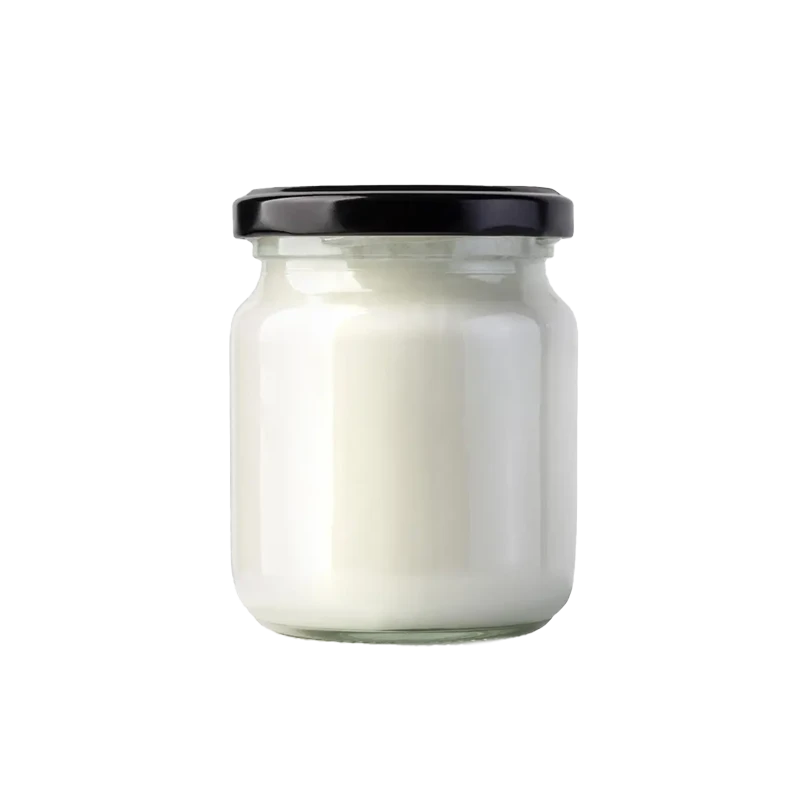Coconut Oil — Nutrients, Health Benefits, and Shopping Tips

Written by Listonic Team
Last update on September 5, 2024
Nutrients
Nutrition facts
Amount per 100 g
Calories
🔥 862 kcal
| Nutrients per: 100 g | Value | % Daily Value* |
|---|---|---|
| Carbs | 0 g | - |
| Fiber | 0 g | - |
| Sugars | 0 g | - |
| Glycemic Index | 0 | - |
| Protein | 0 g | - |
| Sodium | 0 mg | - |
| Total Fat | 100 | 128.21% |
*The % of Daily Value (DV) tells you how much a nutrient in a serving of food contributes to a daily diet. 2,000 calories a day is used for general nutrition advice.
Key takeaways
Health benefits
- Rich in healthy fats, particularly MCTs, which provide a quick source of energy and may support metabolism.
- Contains antimicrobial properties, which can help fight off infections and improve overall health.
- Supports skin and hair health when used topically, providing moisture and reducing inflammation.
- May support weight management by increasing satiety and promoting fat burning.
Health risks
- High saturated fat content which can contribute to increased cholesterol levels and raise the risk of heart disease if consumed frequently or in large amounts.
- High calorie content which can contribute to weight gain if not consumed in moderation, especially when added to a diet already high in fats.
- Potential for allergic reactions in some individuals, causing symptoms like itching, swelling, or difficulty breathing.
- Risk of digestive discomfort such as bloating or diarrhea when consumed in large amounts, particularly in those not accustomed to high-fat foods.
How to choose coconut oil
Choose coconut oil that is solid at room temperature and melts clear. It should have a mild, sweet coconut aroma. Opt for virgin or cold-pressed varieties to ensure you're getting the oil in its most natural state.
Avoid refined coconut oils that lack scent and flavor, as these have been processed and may have fewer health benefits. Good coconut oil should be versatile for both cooking and skincare, with a pleasant, subtle coconut taste and aroma.

How to store coconut oil
Coconut oil should be kept in a cool, dark place to maintain its quality. Storing it in an airtight container helps prevent oxidation. Properly stored, coconut oil can last up to two years.
Exposure to heat and light can cause coconut oil to become rancid. Avoid keeping it near the stove or in direct sunlight. Ensure the container is tightly sealed to preserve its flavor and extend its shelf life.
✅ Extra Tip
How long does it last?
Coconut oil can last for 1-2 years when stored in a cool, dark place. It remains stable at room temperature and does not require refrigeration. Always check for any off smells or changes in texture before using.
What to do with leftovers?
Leftover coconut oil can be used in a variety of ways, both in cooking and for non-culinary purposes. Use it as a substitute for butter or other oils in baking, where it adds a subtle coconut flavor to cookies, cakes, and muffins. Coconut oil is also great for frying or sautéing, as it has a high smoke point and imparts a mild, sweet flavor.
Use coconut oil in smoothies or coffee for a creamy texture and extra nutrition. If you have a lot of coconut oil, consider using it to make homemade granola or energy bars with nuts, seeds, and dried fruit. Coconut oil can also be used in homemade beauty products like lip balm, body lotion, or hair treatments. For a quick and easy snack, try spreading coconut oil on toast with a sprinkle of cinnamon and sugar, or using it as a base for a popcorn topping with your favorite seasonings.
👨⚕️️ Medical disclaimer
How coconut oil supports specific health conditions
Coconut oil is a source of healthy fats, particularly medium-chain triglycerides (MCTs), which support brain function and provide a quick source of energy. It may promote heart health by improving cholesterol levels, though it should be consumed in moderation due to its high saturated fat content. Coconut oil is also used to support skin health, as its moisturizing properties help protect the skin from dryness and irritation. Additionally, it contains antimicrobial properties that may support immune health.
Discover products from other categories
Listonic Team
Fact-checked
Our editorial team checked this article to make sure it was accurate at the time of publishing it.
Get the top-rated shopping list app

coconut oil







